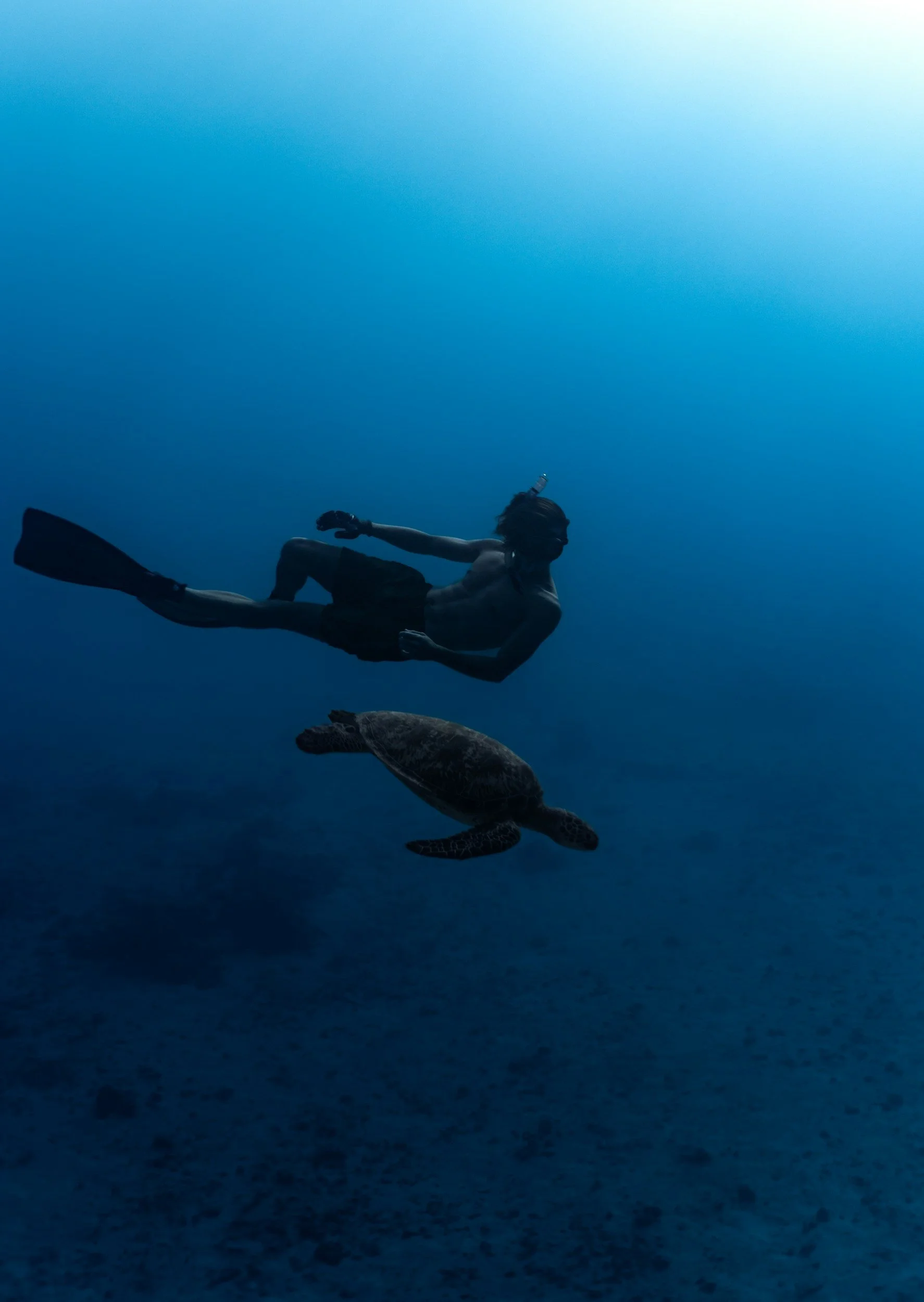
The Science Behind What We Do
At Wild Within, our work is grounded in more than inspiration — it is anchored in science. Increasing amounts of research across psychology, neuroscience, and physiology has shown that nature and movement restore balance to the nervous system, reduce stress, and support healing from trauma.
When people step away from digital noise and immerse themselves in wild spaces, the body and mind respond in measurable ways: heart rate slows, stress hormones decrease, and feelings of calm and connection increase. Nature becomes more than a backdrop — it becomes a co-facilitator of change.
Key Scientific Insights and Resources:
Mammalian Dive Response – Freediving activates a natural reflex that slows the heart rate and strengthens vagal tone (parasympathetic system), key for calm and regulation.
(Source: Philosophical Transactions B, Royal Society)Cold Facial Immersion – Engages the vagus nerve, rapidly down-regulating stress and anxiety.
(Source: Journal of Clinical Review & Reports)Breath-Hold Training – Shown to enhance emotional regulation by lowering physiological arousal and building stress tolerance.
(Source: JCRRR Review on Breath-Hold Training)Interoception & Resilience – Freediving helps people sense and regulate internal body states; 85% of divers in one study reported improved confidence, resilience, and self-concept.
(Source: Elaine Hicks, LCSW study on 120 freedivers)
Freediving offers a unique and scientifically validated pathway into nervous system regulation and trauma recovery. Unlike any other practice, freediving combines breath, immersion, and mindset in a way that directly impacts stress physiology.
The Mammalian Dive Response: When the face meets cool water and the breath is held, the body triggers an ancient reflex — slowing the heart rate, conserving oxygen, and activating parasympathetic calm. This is a built-in reset switch for stress.
Breath as Medicine: Training breath-hold tolerance rewires the body’s relationship to CO₂ and the “urge to breathe,” teaching us to stay calm under pressure. This directly translates into real-world stress management.
Emotional Resilience: Freediving requires presence, surrender, and trust — the same qualities needed to navigate trauma. Divers often describe the ocean as a mirror, reflecting back both resistance and the possibility of release.
Blue Mind Science: Research into “blue spaces” shows that water immersion reduces anxiety and depression while increasing feelings of awe, belonging, and wellbeing. Freediving amplifies these effects by making us an active participant in the ocean environment.
For trauma survivors and high-performers alike, freediving becomes more than sport — it becomes a practice of reclaiming agency, nervous system mastery, and inner freedom.
Why freediving is such a powerful transformational tool:
Nervous System Reset: Time in “blue and green spaces” has been shown to reduce cortisol (the stress hormone), lower blood pressure, and increase heart-rate variability — an indicator of resilience and adaptability.
Shifting Brain States: Natural environments calm the overactive “threat” centers of the brain and activate networks linked to creativity, problem-solving, and perspective.
Awe and Meaning: Vast landscapes and ocean horizons evoke awe — an emotion linked to reduced rumination, expanded perspective, and improved mental health.
Embodied Movement: Gentle yet intentional movement in nature integrates body and mind, releasing stored tension and re-establishing a sense of safety in the body — a cornerstone of trauma recovery.
This is why so many people leave the wilderness or ocean not just refreshed, but transformed: nature itself is a regulating force.
Why Nature Heals
The Role of Movement
Movement is more than exercise; it is a language of regulation. Scientific studies confirm that:
Slow, rhythmic breathing and movement activate the vagus nerve, enhancing parasympathetic activity and calming hyperarousal.
Physical challenge in safe doses (hiking a mountain, holding a yoga pose, or freediving) teaches the nervous system that stress can be navigated — and overcome.
Embodied practices counteract dissociation and numbness by re-anchoring awareness in the body, essential for healing trauma.
Why This Matters
In a world that constantly accelerates, our methods are designed to slow you down — to bring you back into coherence with your body, your mind, and the natural world. This isn’t escapism; it is evidence-based practice.
The science is clear: time in nature, intentional movement, and freediving are not luxuries — they are powerful tools to heal, regulate, and reawaken the human spirit.
At Wild Within, we combine these tools into transformative experiences that are as rigorous as they are soulful — grounding personal growth in both ancient wisdom and modern science.



